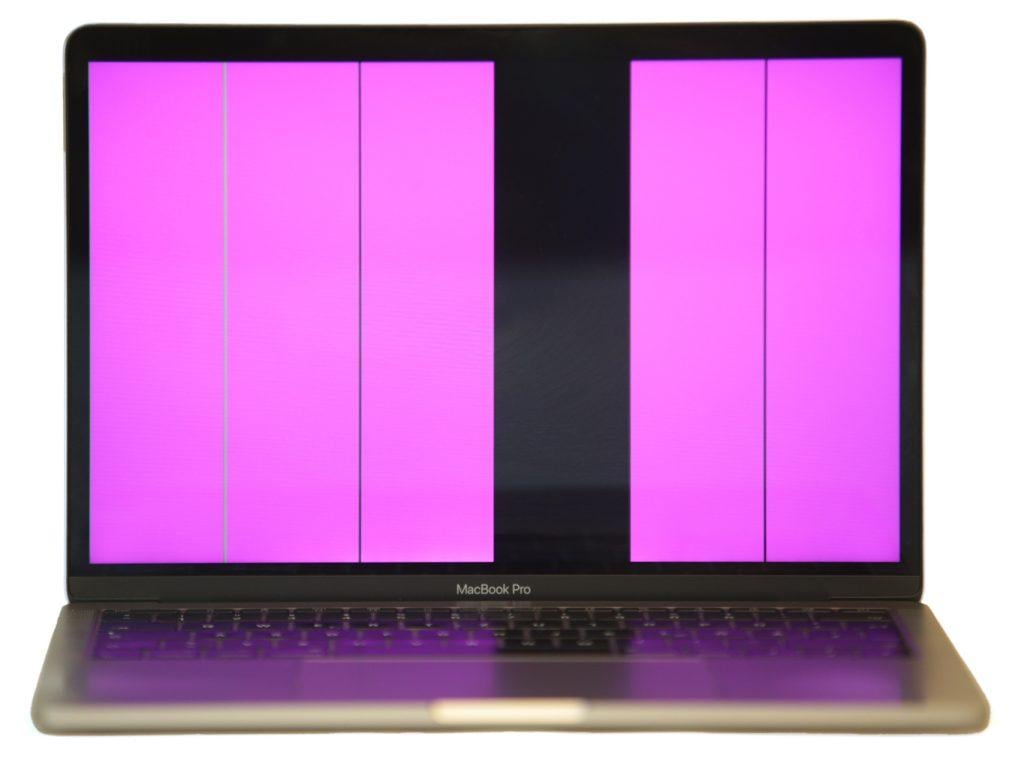Introduction
Does your MacBook Pro display suddenly have stripes, flicker or show an uneven "stage light effect" at the bottom edge of the screen? Then you may be affected by the notorious Flexgate problem. In this comprehensive guide, we explain what's behind it, which models are affected and what solutions are available.
What is the Flexgate Problem?
Flexgate is a design flaw that mainly affects MacBook Pro models from 2016 to 2020. The problem arises from display cables that are too short or too delicate, which wear out from repeatedly opening and closing the laptop.
The Most Common Symptoms:
- Stage Light Effect: Uneven lighting at the bottom edge of the display
- Vertical stripes: Colored or gray lines on the screen
- Screen flickering: Especially when moving the display
- Complete display failure: Screen stays black

Affected MacBook Pro Models
Particularly Susceptible (2016-2018):
Partially Affected (2019-2020):
Apple slightly extended the cable design from 2018 (from 2mm to 6mm), which reduced the problem but didn't completely solve it.
How to Identify the Problem
The Angle Test:
- Open your MacBook Pro to about 90 degrees
- Slowly move the display back and forth
- Observe if symptoms change
If the stripes or flickering disappear or get worse at certain angles, this indicates a display cable problem.
Test External Display:
Connect an external monitor. If it works perfectly, the problem is definitely with the internal display or its connection.
Technical Causes in Detail
1. Cables Too Short
The display cables in affected models are minimally sized. They are stretched and bent with each opening and closing.
2. Material Fatigue
The thin flex cables consist of delicate conductor tracks that can break through repeated movement.
3. Heat Development
The position of the cables near heat-generating components accelerates wear.
Solution Options
Short-term Measures:
- Adjust display angle: Find an angle where the problem is minimal
- Use external display: As a temporary solution for important work
- Careful handling: Avoid frequent opening/closing
Permanent Repair:
Our Repair Options at Sadaghian:
- Display replacement with original part: Complete replacement of display unit including new cables
- Used original display: More cost-effective alternative with tested used parts
- Cable modification: Possible on some models but complex
Repair Costs
| Model | Repair Option | Estimated Cost |
|---|---|---|
| MacBook Pro 13" (2016-2020) | New display | €400-600 |
| MacBook Pro 13" (2016-2020) | Used display | €300-450 |
| MacBook Pro 15"/16" | New display | €600-900 |
| MacBook Pro 15"/16" | Used display | €450-650 |
All prices include installation and warranty. You'll receive an exact price after free diagnosis.
Preventive Measures
Even though the problem is design-related, you can extend the lifespan:
- Gentle opening/closing: Avoid jerky movements
- Optimal opening angle: Don't open beyond 130 degrees
- External monitors: Reduce use of internal display
- Regular inspection: Watch for early signs
Conclusion and Recommendation
The Flexgate problem is a known design flaw affecting many MacBook Pro owners. While Apple offered free repair programs for some models, these have mostly expired.
Professional Help for Display Problems
At Sadaghian we offer:
- ✓ Free diagnosis
- ✓ Transparent prices
- ✓ Original and tested used parts
- ✓ Warranty on all repairs
- ✓ Fast completion (1-3 days)
Contact:
📍 Leverkusenstraße 3, 22761 Hamburg
Further Information
Do you have more questions about the Flexgate problem or other MacBook repairs? Also visit our other articles: